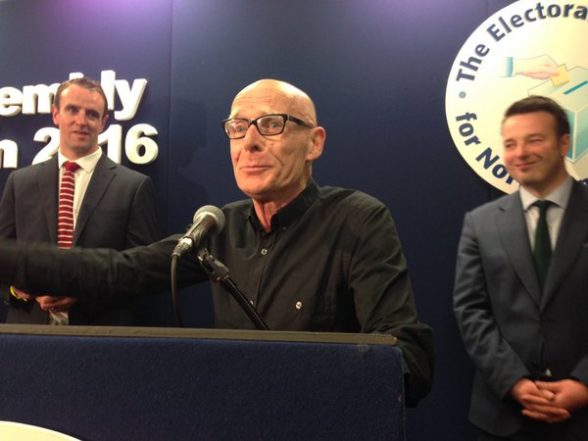
People Before Profit’s Eamonn McCann
THE Northern Ireland Civil Rights Association (NICRA) and Sinn Féin were infiltrated by an undercover British police unit which is currently the focus of a major inquiry.
Details of a cover name used by a member of the Special Demonstration Squad (SDS) was made public by the Undercover Policing Inquiry yesterday.
The SDS was a squad that infiltrated political groups and whose officers were drawn from the Metropolitan Police.
While republican groups were and are regularly targeted by intelligence agencies, it is rare for evidence of infiltration of the Civil Rights Association to surface.
The NICRA was formed in 1968 in response to discrimination against nationalists by the unionist regime at Stormont and advocated peaceful demonstration.
The activities of the SDS are subject of the ongoing Undercover Policing Inquiry, which has also been set up to investigate and report on the operations of the National Public Order Intelligence Unit and other police forces across England Wales since 1968.
Headed by Sir John Mitting, the inquiry is not expected to produce a final report until 2023.
A former officer, who used the alias ‘Sean Lynch’ and who has since died, worked undercover in the unit between 1968 and 1974.
The inquiry revealed yesterday that he is believed to have infiltrated the NICRA, Sinn Féin in London and a group called the Irish Civil Rights Solidarity Campaign (ICRSC).
Former Foyle MLA Eamonn McCann, who was a member of both the NICRA and ICRSC, said he had no doubt there was widespread surveillance.
“It’s now obvious that undercover police officers, intelligence and security officers were infiltrating everything,” he told The Irish News.
“It was very difficult to judge what was real infiltration and what was not because there was a high level of paranoia.”
‘Sean Lynch’ is one of several members of the SDS that went undercover in groups connected to the wider republican movement in the early 1970s.
They include an officer who is believed to have used the name ‘Alex Sloan’ to penetrate the Irish National Liberation Solidarity Front (INLSF) between 1971 and 1973.
According to the inquiry the former officer, who is now in his 70s, has expressed concern about the “physical safety of himself and his family” if his real name is published and is concerned about the risk of media intrusion.
The inquiry has ruled that publication of his real name “would serve no useful purpose”.
The inquiry said it wants to hear from anyone who had contact with any of the undercover officers while they were using their cover names.
Solicitor Darragh Mackin has called for the enquiry to be extended.
“The recent revelation further underlines the need for the extension of the undercover policing inquiry to include this jurisdiction,” he said.
Tags:




